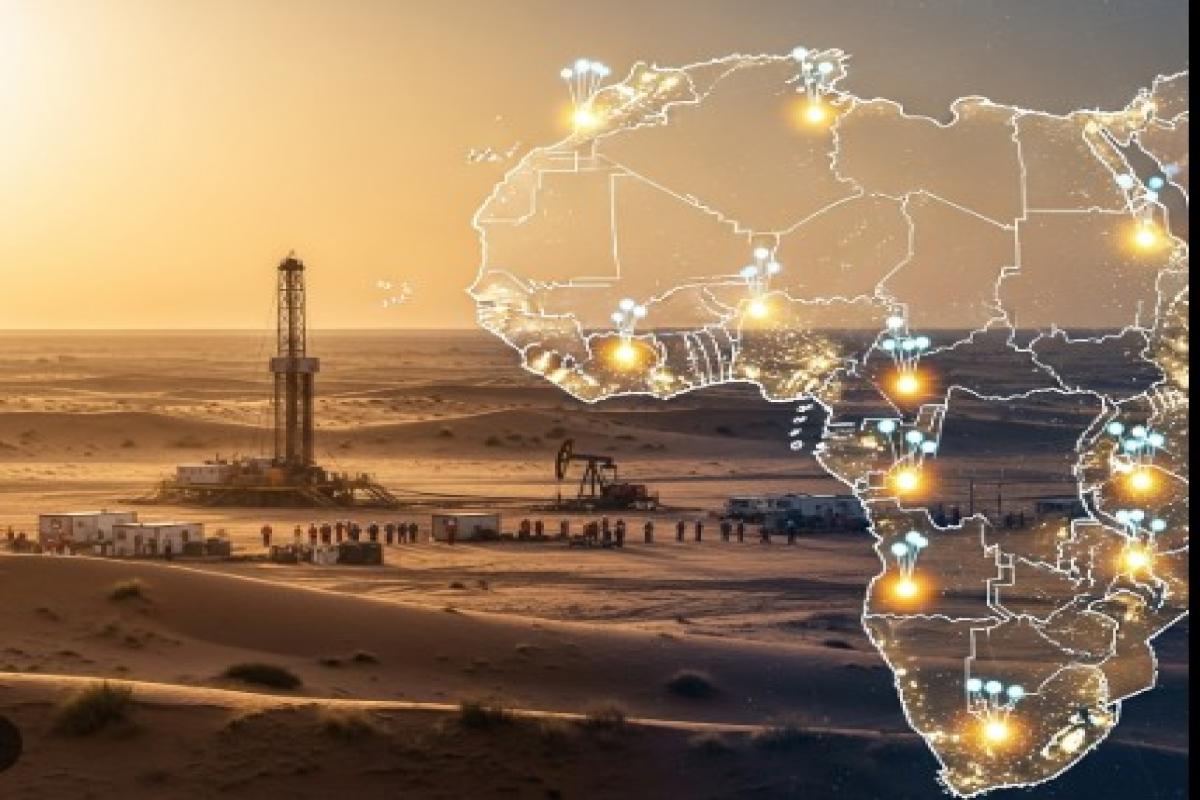Accra, Ghana & Lagos, Nigeria - The discovery of oil and gas is often hailed as a nation's golden ticket to prosperity. For Ghana and Nigeria, the rich reserves off their coasts have promised economic transformation and a brighter future. Yet, beneath the shimmering surface of black gold lies a complex and often perilous landscape of risks. From fiery industrial accidents to the slow poison of environmental degradation, the human and financial costs of an ill-managed oil and gas sector can be staggering. This is a story of two West African neighbours, their shared dreams, and their divergent paths in navigating the high-stakes world of energy exploration, as seen through the lens of risk management and insurance.
Ghana: A Calculated Approach in the Shadow of a Giant
As a relatively new player in the oil game, Ghana has had the "advantage" of learning from the decades-long, and often turbulent, experiences of its neighbour, Nigeria. This has fostered a more measured and regulated approach to its nascent industry. However, the journey has not been without its own trials, testing the nation's resolve and the robustness of its risk management frameworks.
🌍 Need tailored insurance coverage?. Whether it is marine, motor, or property?. Get a free quote at Safeguard Insurance Brokers.
The Tema Oil Refinery: A Crucible of Fire and Finance
The Tema Oil Refinery (TOR), a cornerstone of Ghana's energy infrastructure, stands as a stark reminder of the multifaceted risks inherent in the oil and gas sector. A major fire in 2017, which thankfully resulted in no fatalities but caused significant damage, brought the critical importance of operational risk management into sharp focus. While specific details of the insurance claims and payouts remain closely guarded, the incident underscored the necessity of comprehensive insurance coverage for such vital national assets. The financial health of TOR has also been a persistent challenge, with government subsidies and mounting debt impacting its ability to invest in crucial maintenance and safety upgrades. This highlights the often-overlooked financial risks that can have a direct impact on operational safety.
The impact of such incidents extends far beyond the refinery's gates. For the coastal communities in the Western Region, the heart of Ghana's oil production, the industry has been a double-edged sword. While the promise of jobs and development was high, the reality has been more complex. Fishermen in communities like Half Assini speak of dwindling catches, attributing the decline to the offshore activities. "The sea is our lifeblood, but since the oil came, we struggle to fill our nets," lamented a local fisherman. These personal accounts paint a vivid picture of the socio-economic risks that must be managed alongside the more visible operational hazards.
Ghana's response has been to strengthen its regulatory framework, with the Petroleum Commission and the National Insurance Commission (NIC) playing pivotal roles. The country's local content laws are designed to ensure that a significant portion of the insurance business is retained locally, building capacity within the Ghanaian insurance industry. Success stories are emerging, with local insurers forming consortiums to underwrite larger and more complex risks in the energy sector, a testament to a growing confidence and capability.
💼 Partner with InsureGhana to grow your insurance business. Learn More
Nigeria: A Legacy of Spills, Scars, and a Quest for Redemption
With over six decades of oil exploration, Nigeria's narrative is one of immense wealth generation intertwined with profound social and environmental challenges. The Niger Delta, a region of rich biodiversity and the heart of the nation's oil production, bears the deepest scars of this complex legacy.
The Haunting Specter of the Trinity Spirit
🟡 Need vehicle insurance? Compare quotes from top insurers. Contact us at. Safeguard Insurance Brokers
The explosion and subsequent sinking of the Trinity Spirit, a floating production, storage, and offloading (FPSO) vessel, in February 2022, was a tragedy that resonated far beyond Nigeria's borders. The incident, which resulted in fatalities and a significant oil spill, was a harsh lesson in the consequences of inadequate risk management. Investigations revealed that the vessel was old, poorly maintained, and, crucially, lacked adequate insurance from a reputable international provider. The financial fallout from the uninsured losses and the long-term environmental damage serve as a cautionary tale for the entire industry.
For the communities of the Niger Delta, the Trinity Spirit was a horrifying manifestation of the risks they live with daily. For generations, they have witnessed the devastating impact of oil spills on their farmlands, fishing waters, and health. Personal stories from the region are heartbreaking. "We used to drink from the streams, farm the land, and the fish were plentiful," recalls a community elder from Ogoniland. "Now, our land is poisoned, and our children suffer from strange illnesses." The struggle for compensation and environmental remediation has been a long and arduous one, often leaving communities feeling abandoned and unheard.
In response to these immense challenges, Nigeria has implemented robust local content laws through the Nigerian Content Development and Monitoring Board (NCDMB). These regulations mandate that a significant portion of the oil and gas industry's insurance business be handled by local firms. This has led to the growth of a more vibrant domestic insurance market, with Nigerian companies increasingly taking on larger and more sophisticated risks. However, challenges remain, particularly in covering the immense liabilities associated with deepwater exploration, where the financial capacity of local insurers is still being tested.
🌍 Explore reinsurance insights and trends across West Africa at InsureGhana Insights.
A Shared Future: Collaboration and the Human Touch
While their journeys have been different, Ghana and Nigeria face a shared future in the ever-evolving global energy landscape. The drive for greater transparency, accountability, and a more equitable distribution of the benefits of their natural resources is a common thread that binds them.
A comparative look at their approaches to risk management and insurance reveals key insights:
- Learning Curve: Ghana has benefited from a "latecomer advantage," allowing it to proactively implement stricter regulations and learn from Nigeria's challenges.
- Local Content: Both nations have championed local content in insurance, but the effectiveness and enforcement of these policies are a continuous work in progress.
- Community Engagement: Nigeria's painful history has highlighted the absolute necessity of a "social license to operate," a lesson that Ghana is taking to heart as it develops its community engagement strategies.
Ultimately, effective risk management in the oil and gas sector is not just about preventing catastrophic events; it is about protecting the lives, livelihoods, and environments of the people who call these resource-rich regions home. For both Ghana and Nigeria, the true measure of success will not be in the barrels of oil produced, but in the well-being of their citizens and the preservation of their natural heritage for generations to come. The human touch – listening to the voices of affected communities, ensuring fair compensation, and prioritizing safety above all else – will be the most critical ingredient in navigating the complex and often treacherous waters of the oil and gas industry.
Disclaimer: "The views expressed on this site are those of the contributors or columnists, and do not necessarily reflect insureghana's position. insureghana.com will not be responsible or liable for any inaccurate or incorrect statements in the contributions or columns here."

InsureGhana Research Team
Providing independent intelligence and guidance for brokers across West Africa.

